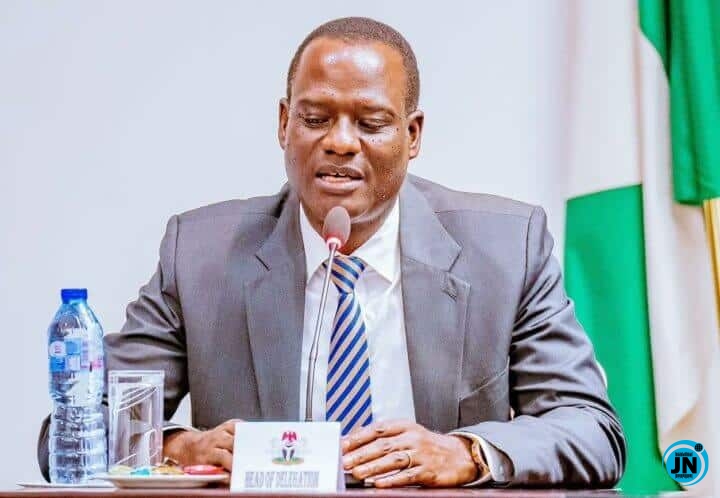The Chairman of the Presidential Committee on Fiscal Policy and Tax Reforms, Taiwo Oyedele, has expressed concerns that the new External Revenue Service introduced by U.S. President Donald Trump could disrupt global trade. Oyedele shared his thoughts on his X account Monday night, following Trump’s inauguration. During his speech, Trump confirmed plans for the External Revenue Service, stating, “Instead of taxing our citizens to enrich other countries, we will tariff and tax other countries to enrich our citizens. For this purpose, we are establishing the External Revenue Service to collect all tariffs, duties, and revenues—a massive amount of money flowing into our treasury.”

Reacting to the announcement, Oyedele remarked, “The 47th President of the United States, Donald J. Trump, announced plans to create an External Revenue Service to impose tariffs and taxes on other countries. This move could disrupt international trade and further complicate the already complex global tax system, emphasizing the importance of Nigeria’s ongoing tax reforms.”
He further explained that overhauling Nigeria’s tax system is critical in helping the country navigate potential challenges and seize opportunities arising from this development. He emphasized that Nigeria must position itself strategically to ensure it remains competitive on the international stage, despite the potentially disruptive effects of these global changes.
Oyedele has been at the forefront of Nigeria’s tax reform efforts, pushing for tax policy adjustments and improvements in tax administration. On October 3, 2024, President Bola Tinubu submitted four key tax reform bills to the National Assembly: the Nigeria Tax Bill, the Nigeria Tax Administration Bill, the Nigeria Revenue Service Establishment Bill, and the Joint Revenue Board Establishment Bill. These bills are part of the broader push for fiscal policy reforms that would better align Nigeria's tax system with global standards and improve economic performance.
The bills have sparked intense debates on equity, implementation, and the overall economic impact, particularly concerning how tax reforms could affect various sectors of the Nigerian economy. Oyedele emphasized that these reforms would need to balance national fiscal priorities with regional sensitivities, ensuring fair distribution of resources and addressing the concerns of both urban and rural areas. Despite some opposition to the proposed reforms, the Nigerian Governors’ Forum (NGF) recently endorsed a revised Value Added Tax (VAT) sharing formula aimed at ensuring equitable resource distribution. This new formula proposes allocating 50% of VAT based on equality, 30% based on derivation, and 20% based on population, a move that Oyedele has supported, considering its potential to reduce disparities across the country.
In his address at The Platform, an event hosted by The Covenant Nation on Saturday, Oyedele stressed that implementing tax reforms requires careful consideration and compromise. “Reforms require balance, including political considerations. Progress doesn’t always happen in one leap; sometimes, gradual steps are necessary,” he said, emphasizing the importance of a phased approach to policy changes that would facilitate smoother transitions and long-term success for Nigeria's economy.

